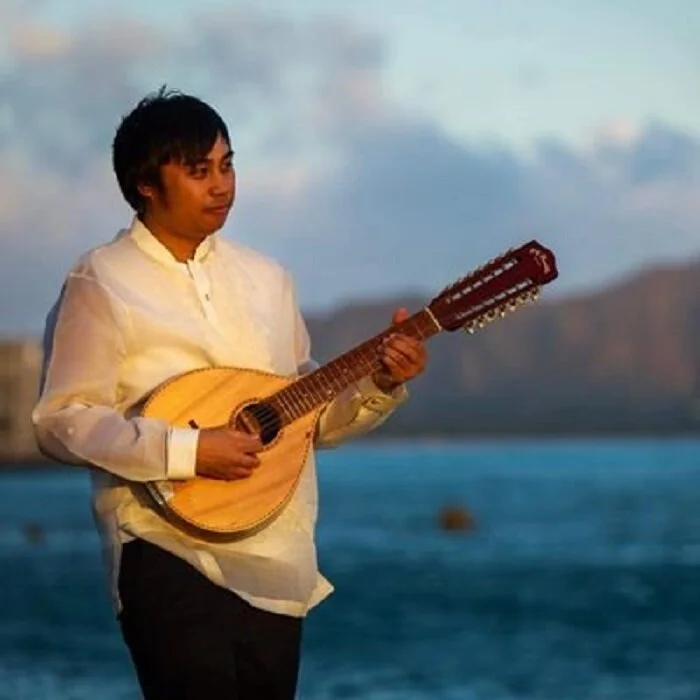A Decade of VGM - Part 5
With the arrival of the new decade, now is the perfect time to reflect on the video game music community and how much it has changed over the past 10 years. I reached out on Twitter, looking for VGM artists that have been active for at least the last decade, and I was overwhelmed by the responses. I had originally intended to create one article, but given the number of responses, I’ve decided to split this into five articles, one for each question that I asked VGM artists. If you haven’t read the first four articles, check them out here. For this article, I asked several musicians one very important question:
Where do you see VGM going in the next 10 years?
Justin Woods
With the constant development of technology, composers will be doing a lot more with video game music as time goes on. I think we've seen hints of more interactive musical techniques in the last twenty years (like Wind Waker's music hits syncing up with sword slashes) and we've dipped into incredibly atmospheric work (like Shadow of the Colossus). There has been an enormous amount of growth in VGM since then, and I foresee that continuing.
As with movements in art, we'll probably see more innovative and experimental compositional techniques. With the increasing availability of music resources, we'll see a lot more composers come out of the woodwork to share their unique styles. I'm excited for music to diversify as time goes on and to see how game devs will rely on composers to bring their game worlds to life. We are far past the era of bleeps and bloops. It's natural that composers will want to push the envelope and see what sort of emotions they can create with the tools at hand.
SydneyK
I want to see video game music become more integrated into music education. As a teacher, I’ve seen motivation for students skyrocket instantly after teaching them a game tune that they loved. One of the big reasons educators use classical music to teach is simply because of copyright issues. In 10 years, I think a new type of educational license will be around to make game music even more accessible to music educators, and thank goodness many game composers today are willing to share their music. If beginner musicians are allowed to play game music, I believe it’s more likely we’ll have more people in the general population be able to play an instrument! Which is something I personally want to accomplish.
Onomatopoeia!
It’s hard to really predict what the VGM scene is going to be like in 10 years, or even 5 years for that matter. The ease of access to audio software has created a gold mine of creativity, and there are probably ten times the number of musicians trying to get their foot in the door now than there were 5 years ago. With each year, the number just grows and grows because everybody is finding it easier and easier to get access to things that were not so easy to reach in the past.
The sample library market is heavily saturated and continues to improve on realism, but I see more and more composers leaning towards hiring real musicians now than settling for samples when it is reasonable to do so. Obviously hiring performers is not in every composer's budget, but if they ever get the chance, they'll go for it. I myself have become more prone to hiring musicians for lead parts/solos in pieces because of how much more organic they sound when performed. It could very well be because our ears are starting to become attuned to the robotic nature of samples. I have no doubt samples will continue to get more advanced, but that human factor will always be missing. Maybe not to the average listener, but to those of us writing/producing the music, it stands out like a sore thumb.
I do fear that the commercial side of VGM might devolve a bit since it seems to follow the trends of the film industry. There will be new names popping up in the industry for sure that will do amazing work much like new names in the film industry, but then the expectations of the developers might take a wrong turn to where they just want composers to emulate existing sounds. There was a roundtable of professional film composers that discussed this a few years ago, and it was a sad conversation.
The indie scene of video games I think is helping to keep things in check, because in general they are still heavily melody-driven soundtracks that can stand apart on their own. I have no doubt that scene will just continue to grow, and we'll hear some great stuff coming out, but at the same time...there are so many games being pushed out lately that it might be harder to discover some soundtracks if you aren't actively looking for them. It is exciting and scary at the same time. I'd love to see many of my peers succeed and do great things, and I have no doubt that some, if not all of them, will, but will all their efforts be drowned in a sea of indie games?
Felix Arifin
I envision VGM further distancing itself from trying to be an approximation of big film productions and further embracing more unique sounds and styles. Better integration of middleware and further innovations in the field will be really fascinating to watch as well!
Fabian Fabro
With technology advancing in video games, there is still so much that is being explored with the integration of technology into music and audio. One thing, and it is just a scary thought, is how machine learning is being emphasized in the tech industry. This can automate new video game music to be provided without a need for a music background, self-taught or traditional study (or even a composer, ahh too scary to think about). Of course, people will fight against this because composers can't (and shouldn't) be replaced by robots for music. I do also see technology exploring more bounds of new synthesized sounds. There could possibly be a streaming platform dedicated to just video game music too.
On a more musical note, I see more ways of exploring more mixed, non-traditional instrumentations and orchestrations of music. Video game music is rising because of it showing up from cover artists, sparking in other genres with Classical, Jazz, Rock, Metal, etc. More video game music will be performed live, not only in concert halls, but other variety of venues. There are bands and ensembles that try to do this, but it could potentially become more common. More universities could start more programs on game composer/audio study programs or ludomusicology programs, or at least offer more classes on these topics. More grade schools could have workshops based on video game music topics and careers. Since the game industry is evolving rapidly, the old classic game music from the 80's/90's era will become the 'old classical music' of video game music as the next generation gets introduced to game music.
Steel Samurai
Back in 1994, MTV audiences wondered, "what will be the next Seattle?" What we didn't realize was that there was going to be no "next Seattle"—ever. That's because the gatekeepers lost their power due first to file sharing, then to the broader development of the internet through platforms like YouTube. As their influence declined, we saw a democratization of music production and with it, a proliferation of styles and media in popular music beyond what mid-1990s audiences could have visualized.
VGM is following much the same course. Given the proliferation of indie game development, and by extension, indie VGM composition, the future of VGM will involve a massive expansion of styles and media that we can't hope to encapsulate into a single vision. In a sense, the question has no answer. If you say the future may involve "a trend toward minimalism" or a "trend towards chiptune" or "a trend towards remixing" or just about anything else, you're probably going to be right in every case, because the future of VGM will probably include expansion of all of those genres, and more than we can currently fathom.
If you create VGM yourself, feel free to share your own response on social media or in the comments below. Thanks for reading, and if you haven’t already, check out Parts 1 through 4 here!






